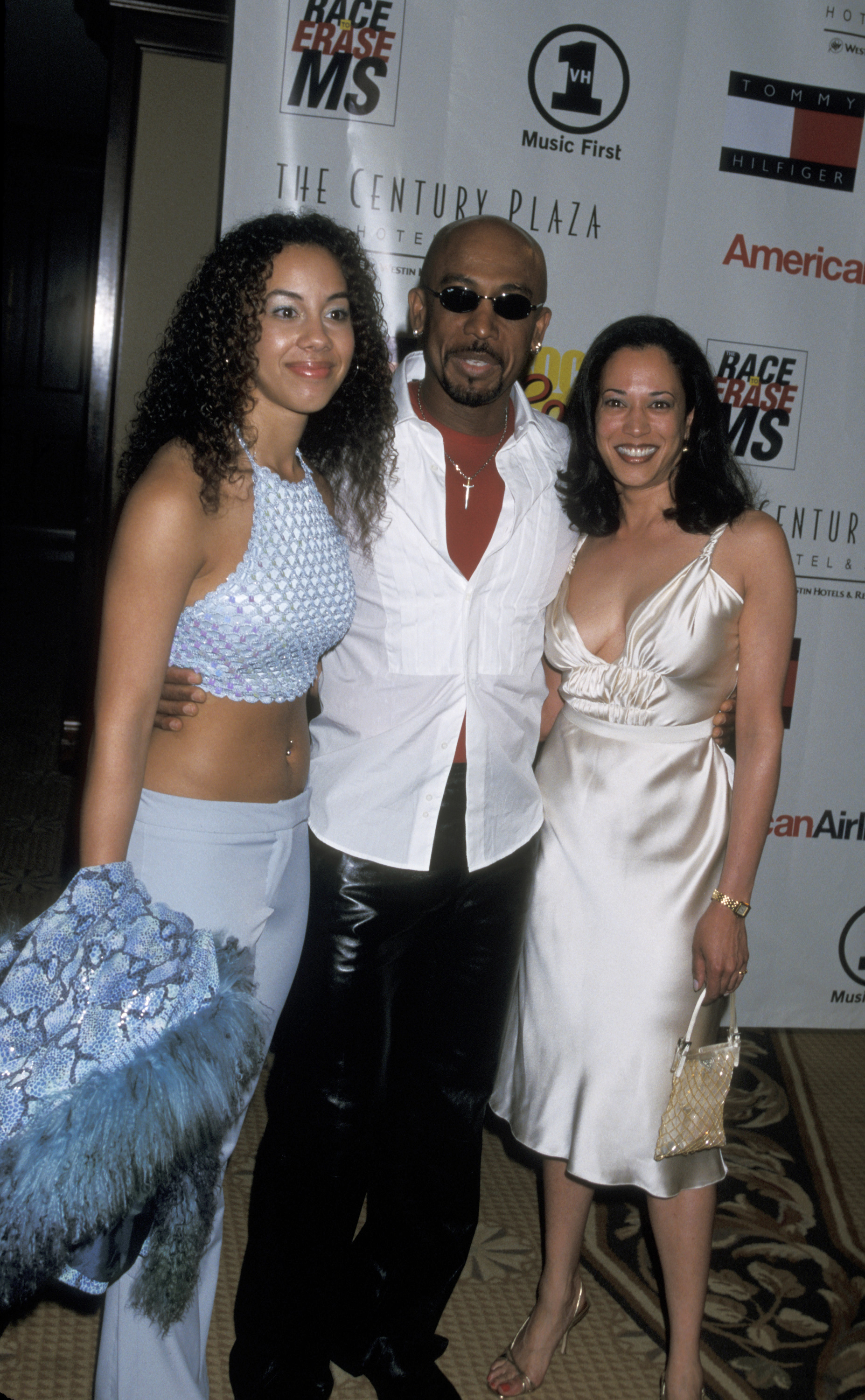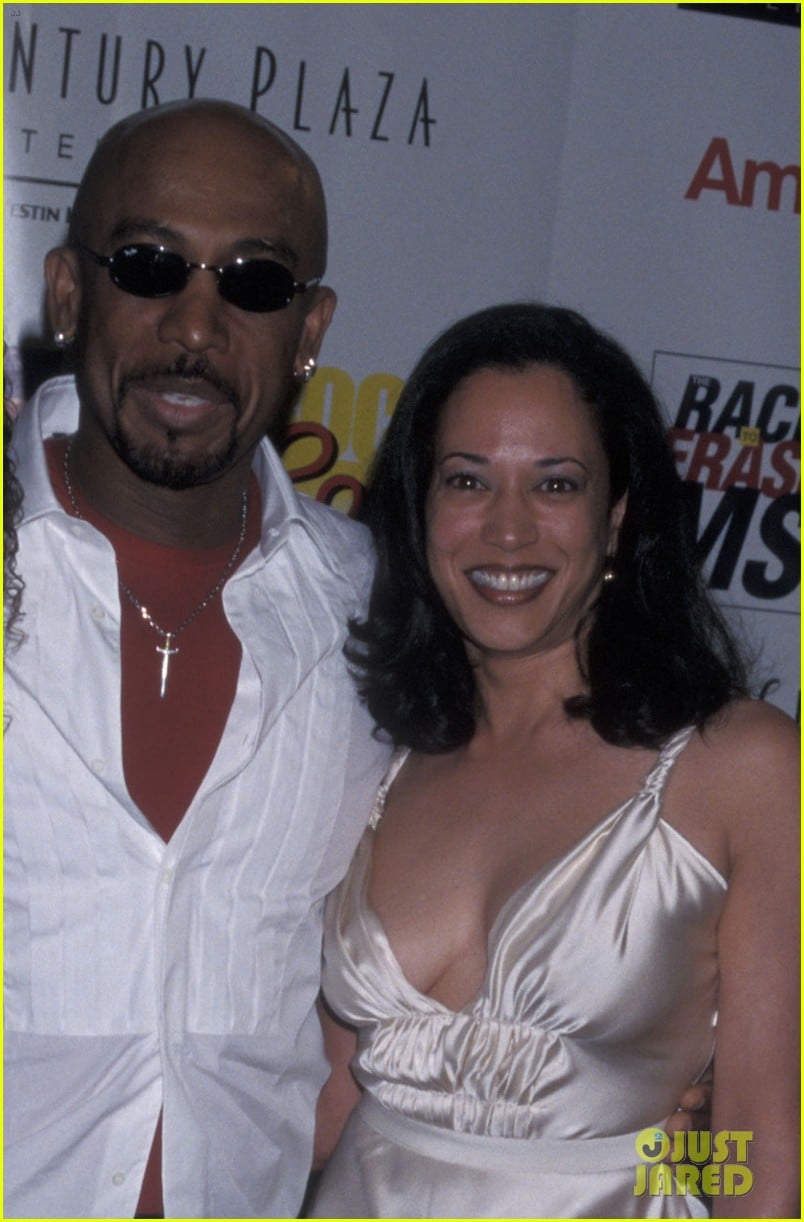Kamala Harris And Montel Williams: A Journey Of Advocacy And Change
In the ever-evolving landscape of American politics and media, few names resonate as powerfully as Kamala Harris and Montel Williams. Both have established themselves as influential figures in their respective fields, advocating for change and addressing critical social issues. Their paths, while distinct, intersect in meaningful ways, showcasing the impact of celebrity and political influence on public discourse. This article delves into the lives and contributions of Kamala Harris and Montel Williams, exploring their shared commitment to social justice and empowerment.
Kamala Harris, the first female Vice President of the United States, has made history through her trailblazing career in law and politics. Meanwhile, Montel Williams, a beloved television personality and advocate for health issues, has used his platform to bring attention to a variety of causes, particularly those affecting the African American community. Together, they embody the spirit of advocacy, each fighting for a better tomorrow in their unique ways.
As we explore the intersection of Kamala Harris and Montel Williams' journeys, we uncover fascinating insights into their personal lives, careers, and the impact they have made on society. Their stories serve as inspiration for those who aspire to create change, proving that one voice can indeed make a difference.
What is Kamala Harris's Biography?
Kamala Harris was born on October 20, 1964, in Oakland, California. She is the daughter of immigrant parents—her mother from India and her father from Jamaica. Harris attended Howard University, where she earned her Bachelor of Arts degree in political science and economics. She later graduated from the University of California, Hastings College of the Law, where she obtained her Juris Doctor degree.
What is Montel Williams's Biography?
Montel Williams was born on July 3, 1956, in Baltimore, Maryland. He served in the United States Navy before pursuing a career in television. Williams gained fame as the host of "The Montel Williams Show," which aired from 1991 to 2008. He has since become an advocate for various health issues, including multiple sclerosis awareness, as he himself has been diagnosed with the disease.
Personal Details and Bio Data of Kamala Harris
| Name | Kamala Devi Harris |
|---|---|
| Date of Birth | October 20, 1964 |
| Occupation | Politician, Lawyer |
| Position | Vice President of the United States |
| Education | Howard University, UC Hastings College of the Law |
Personal Details and Bio Data of Montel Williams
| Name | Montel Brian Anthony Williams |
|---|---|
| Date of Birth | July 3, 1956 |
| Occupation | Television Host, Actor, Advocate |
| Notable Work | The Montel Williams Show |
| Health Advocacy | Multiple Sclerosis Awareness |
How Have Kamala Harris and Montel Williams Contributed to Social Causes?
Kamala Harris has been a strong advocate for criminal justice reform, healthcare access, and voting rights. Throughout her career, she has worked to dismantle systemic barriers that affect marginalized communities, emphasizing the importance of equity and justice.
Montel Williams has utilized his platform to raise awareness about multiple sclerosis, a condition he has battled since 1999. He has spoken candidly about his experiences, helping to destigmatize the disease and encourage others to seek treatment and support. Additionally, Williams has been a vocal advocate for mental health, particularly in the African American community, where such discussions are often overlooked.
What Is the Relationship Between Kamala Harris and Montel Williams?
While Kamala Harris and Montel Williams come from different backgrounds, they share a commitment to advocacy for social justice and health awareness. Their paths have crossed in various public forums, where they have collaborated on initiatives aimed at bettering the lives of individuals across the nation. Both individuals have emphasized the importance of dialogue and community engagement in driving change.
What Are Some Key Initiatives Supported by Kamala Harris and Montel Williams?
- Criminal Justice Reform: Both Harris and Williams have spoken out against mass incarceration and advocated for policies that promote rehabilitation over punishment.
- Healthcare Access: Harris has pushed for affordable healthcare, while Williams has dedicated his efforts to raising awareness about multiple sclerosis and mental health.
- Voting Rights: Harris has been a staunch advocate for protecting voting rights, ensuring that every voice is heard in the democratic process.
- Community Engagement: Both figures emphasize the importance of grassroots movements in enacting real change at the local and national levels.
How Do Kamala Harris and Montel Williams Inspire Others?
The stories of Kamala Harris and Montel Williams serve as beacons of hope for many. They exemplify the power of resilience, determination, and advocacy in the face of adversity. Through their work, they inspire individuals to take action, whether it be through political engagement or personal health management.
Harris’s rise to the Vice Presidency has motivated countless women and people of color to pursue careers in politics, while Williams’s candid discussions about his health challenges have encouraged others to seek help and prioritize their well-being. Together, they represent the potential for change when individuals dedicate themselves to the greater good.
What Can We Learn from Kamala Harris and Montel Williams?
The journeys of Kamala Harris and Montel Williams teach us several valuable lessons:
- Advocacy Matters: Both figures demonstrate that speaking up for what you believe in can effect real change.
- Resilience is Key: Overcoming personal and professional obstacles is part of the journey to success.
- Community Engagement is Vital: Grassroots movements and community involvement are essential for lasting impact.
- Health Awareness is Crucial: Open discussions about health issues can help destigmatize and encourage treatment.
Conclusion: The Lasting Impact of Kamala Harris and Montel Williams
In conclusion, Kamala Harris and Montel Williams are more than just prominent figures; they are advocates for change and voices for the voiceless. Their commitment to social justice, health awareness, and community engagement continues to inspire individuals across the nation. As they forge ahead in their respective paths, the legacy of their work will undoubtedly leave a lasting impact on future generations.
Article Recommendations
- August Taylor
- Cast Of Shrek
- David Arthur Carr
- Hdhub4u Netflix Download
- Bryce Adams Leaked
- Scarlett Pomers Married
- Christopher Daniel Barns
- Sophie Rain Leak
- Nathan Kane Mathers
- Emilia Clarke Husband




